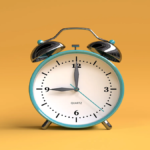Are you familiar with the word ‘inemuri’? You may have rightly guessed the word’s origin: it’s Japanese. The meaning of it is napping in the workplace. It’s not a good idea to nod off while at work; your supervisor is unlikely to be pleased. Working continuously is seen as a sign of diligence by people throughout. There should be no laziness and no taking naps at work. It may thus surprise you to know about the idea of inemuri. It is because the people of Japan have realized the Benefits of Napping.
A little catch-up sleep might be the ideal remedy for the afternoon drowsiness that many people encounter. However, naps have several purposes beyond just relieving fatigue. Although they may not have a good reputation, naps are beginning to be completely justified. Napping has a ton of advantages for your general health and wellness.
It is relatively new to suggest that we should sleep for eight hours at a time. People sleep in a variety of unusual ways across the globe. For example, millions of Chinese workers still rest for an hour or more after lunch at their workstations, and afternoon naps are customary from India to Spain.
Some Significances of Napping

1. Minimize Lack of Sleep
Many individuals don’t get enough sleep, whether due to sleeplessness, hectic schedules, or environmental problems like noise pollution.
Lack of sleep may lead to a variety of negative symptoms, such as irritation, brain fog, lethargy, and even an increased pain threshold. A nap may lessen these symptoms, assist in making up for lost sleep throughout the night, and improve sensations of restedness.
2. Boost Your Memory
One of the Benefits of Napping is it boosts your memory. Trying to pick up a new ability? Sleep is just what you need. According to research, people who learn new activities recall them better after getting a little sleep.
According to one research, those who slept for an hour had a superior memory for newly learned material than those who took a break or studied heavily before the exam. A week later, out of the three groups, the nappers’ memory of the information was the best.
3. Improve Mood
One importance of naps is they help to improve mood. People who are depressed often find that their symptoms intensify when they sleep poorly.
However, everyone may benefit from naps’ ability to improve mood. Serotonin, or the “happy hormone,” is a neurotransmitter that might be produced more while you nap.
4. Reduces Stress
Sleep may increase the hormone produced that inhibits some of the chemicals produced while under stress.
Reducing physical and psychological stress may help reduce the risk of heart disease. Norepinephrine, a “stress hormone” associated with elevated blood pressure, blood sugar, and heart rate, was shown to be positively impacted by napping in recent research.
5. Increase Work Performance
The benefits of Napping can be seen in your performance. Many successful individuals were proud nappers: Margaret Thatcher, Bill Clinton, Winston Churchill, and Albert Einstein were all strong supporters of afternoon naps.
Additionally, Google and other organizations have implemented “nap pods” to enable their staff members to take short naps while at work. The short-term increases in productivity readily make up for the time spent getting some rest.
6. Lower Blood Pressure
A 45-minute afternoon nap after a stressful event may help reduce blood pressure, significantly enhancing heart health, according to research from Allegheny College in Pennsylvania.
Additionally, there is an association between taking naps and receiving fewer prescriptions for antihypertensive drugs. Napping lowers the risk of heart attacks and other cardiovascular problems.
7. Aids The Immune System
One importance of naps is it aids our immune system. The immune system may be severely harmed by sleep deprivation or bad sleep hygiene.
Napping effectively increases interleukin-6, a molecule that regulates the immune system and is negatively impacted by sleep deprivation. This might imply that nappers have a lower chance of becoming ill or catching a cold, which is good for the body as well as for mental and occupational well-being.
8. Reduce Your Dependency on Coffee
While it may increase alertness, coffee impairs the functioning of important brain processes, including memory. Therefore, the next time you grab a cup of coffee, think about taking a little “power nap” instead for a comparable result without the jitters.
Moreover, a short afternoon nap is preferable to an espresso since it is far less likely to interfere with your ability to fall asleep later that evening. Taking naps is a natural, healthy technique to increase energy and combat tiredness.
A Few Drawbacks of Napping
There are several Benefits of Napping, but there may also be disadvantages for certain individuals. For instance, a daytime nap is linked to self-reported sleep issues in older people, such as frequent nighttime awakenings.
Napping may have further detrimental effects on health. Chinese research discovered that elderly and middle-aged women who slept more than ninety minutes had elevated blood pressure.
A further investigation, including elderly Chinese individuals, discovered a correlation between napping for more than half an hour and an increased incidence of non-alcoholic fatty liver disease. Napping for more than 60 minutes a day was linked to a higher risk of type 2 diabetes, according to a study of research.
Napping was shown to be more prevalent in those with obesity, high blood pressure, anxiety or depression, type 1 and type 2 diabetes, and high blood pressure in another sizable survey of French citizens.
It’s unclear precisely how naps affect health at this point. There is still much to learn about the connection between naps and sleep at night and how the frequency or duration of naps impacts various people’s well-being.
FAQs
Q: How long one should nap?
A: A healthy nap should be between 30-45 minutes.
Q: Sometimes, I feel lethargic after napping. Why does it happen?
A: Napping for extended hours (more than 2 hours) can make you feel that way.
Q: Napping in the workplace can bring me trouble. What should I do?
A: In many workplaces, napping is considered negligent to your duties. If you work in such an organization, avoid napping at any cost.












I am extremely impressed together with your writing abilities
as well as with the structure in your weblog. Is that this a paid theme or did you modify it your
self? Either way keep up the excellent quality writing, it’s rare to
peer a great weblog like this one today.
Thank you so much! I customized it myself—really appreciate your kind words!
I’m extremely inspired together with your writing talents as neatly as with the structure for your weblog. Is this a paid subject matter or did you modify it yourself? Anyway keep up the nice quality writing, it’s rare to see a great blog like this one today!
Thank you so much! I customized everything myself—just something I’m passionate about. Really glad you enjoyed it!